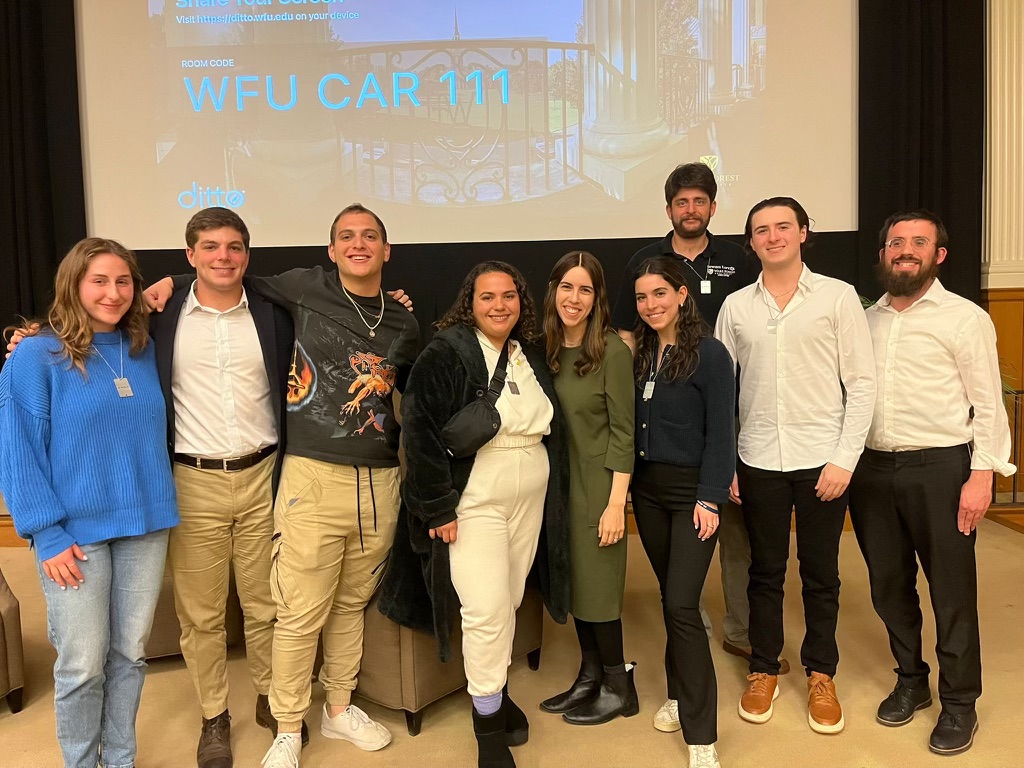After swiping into the Fresh Food Company, affectionately known to students as the Pit, one first encounters a colorful and varied display of grains and vegetables at the salad station.
“My favorite meal to have in the Pit is a salad topped with lots of fresh ingredients,” said sophomore Sophia Franchi. “I start with a base of kale or spinach and add plenty of raw vegetables like peppers, cucumbers, purple cabbage or red onions.”
Franchi’s salad is not only fresh, it is also comprised of predominantly local ingredients.
Wake Forest Dining Services works with the Office of Sustainability to provide students with locally sourced and sustainable food options as often as possible, and their green-eating initiative has gained momentum in the last few years.
The changes to food on campus come at a time of increasing global environmental concern. As climate change takes a toll on weather patterns and the outlook of long-term environmental health, environmentalists and some politicians are taking steps toward creating better, more efficient policies to increase the longevity and health of the earth and its inhabitants. While these policy changes are slow in coming, people at home and in their communities are deciding to take the initiative to go green on their own.
Part of this initiative is a desire to know the source of the food people eat and to support local farms with sustainable farming methods.
According to a post from the Earth Institute at Columbia University, sourcing locally keeps family farms up and running, resulting in the circulation of local money and the strengthening of community relations. These small farms are also more receptive to sustainable farming practices than large industrial farms.
“There’s a real drive right now to purchase locally,” said Tim Vandermeersh, resident district manager of Aramark, the food providing company on campus.
He says that in the past two years, Dining Services has been able to build an eating environment on campus constituted by nearly 30 percent of locally sourced food products. The initial goal was a minimum of 20 percent.
“I buy a Village Juice pressed juice at least once week,” said sophomore Anissa Berger. “It’s a great healthy option to grab and take on the go.”
Village Juice Co. is a local health food restaurant here in Winston-Salem that gets its natural ingredients from local farms. Other locally sourced products offered on campus include Krankies Coffee, Camino Bakery and UpDog Kombucha.
“Included in our dining program is an initiative focused on plant-forward dining,” says John Wise, associate vice president of Hospitality and Auxiliary Services on campus. “These types of programs help reduce the attention on animal proteins which are a major challenge from an environmental perspective.”
Yet, beef, chicken and cold cuts are still dominant choices among students. However, the good news is that all three options have been replaced with Humane Certified, antibiotic-free and hormone-free animal proteins. The beef served on campus is sourced locally from Brasstown Beef, a farm in western North Carolina.
“The burgers at the grill look better than they used to and have a better flavor,” said sophomore Sarah Jane Miles.
“I’ve noticed that the grilled chicken served at the grill on campus is now antibiotic-free and there have been plenty of new local additions to the salad bar which has been great,” Franchi said.
Despite many positive responses to Dining Services’ local food introductions, many students are still apathetic about the changes. “I haven’t noticed any difference or improvement in the quality of the beef in the burgers I eat occasionally,” said sophomore Bennet Coe.
“Honestly, I have no idea which meals are locally grown,” said sophomore Grant Abrahamson. “I just eat what looks good.”
“It’d be nice if they simply incorporated sustainable foods into the meals,” he said. “I don’t want the Pit to market their sustainability to me.”
Even those students excited about the sustainable options offered in campus dining facilities think that the school’s efforts are not enough.
“I think Wake Forest could do a better job spreading awareness about the importance of sustainable foods because I think a lot of students are out of touch with where their food comes from and how it is produced,” Franchi said. “Greater awareness could correlate into more positive health choices.”
Dining Services recognizes the varying attitudes surrounding sustainable eating and is constantly coming up with new ways to keep students informed and provide them with local, environmentally friendly dining choices.
Their next big move is to install interactive screens throughout the Pit that will show the local farmer responsible for growing or raising the food product when a student orders that product.
“Everyday, students will be able to see the farmer we are supporting and the product and where it’s coming from,” Vandermeersh said.













